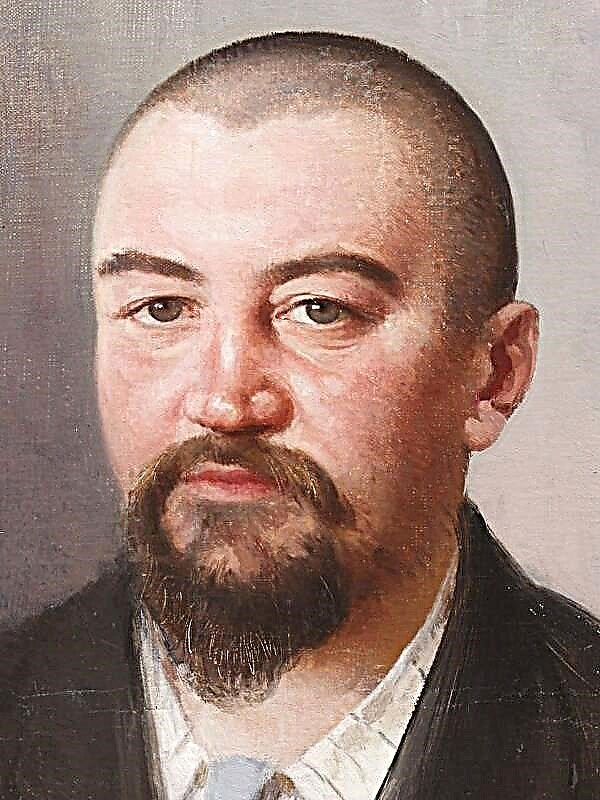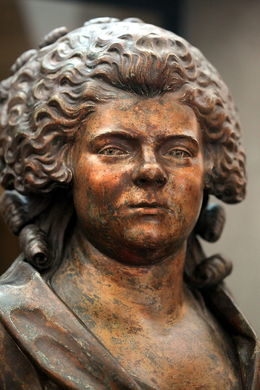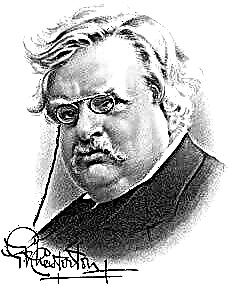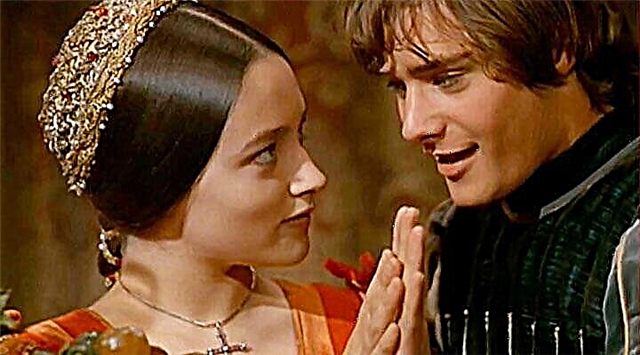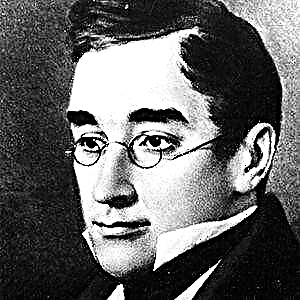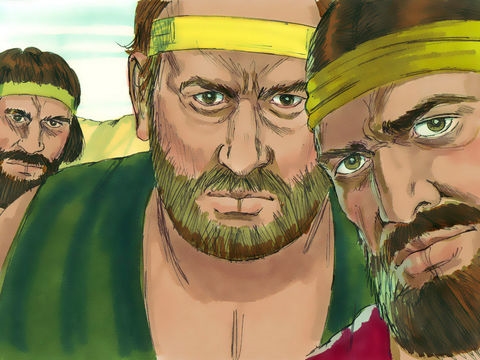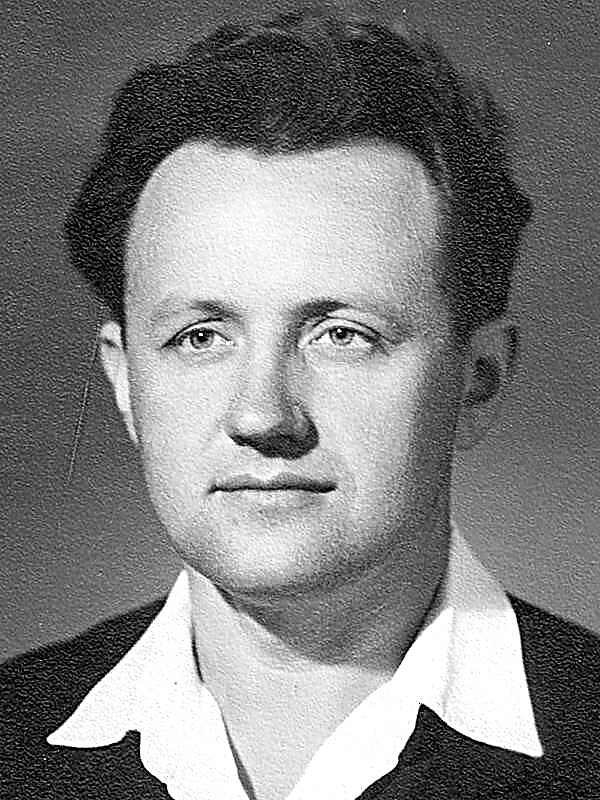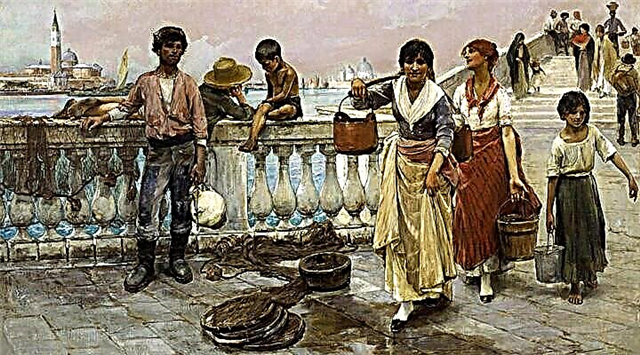With titan Prometheus, the benefactor of mankind, we have already met in Hesiod's poem Theogony. There he is a clever cunning who arranges the distribution of sacrificial bovine meat between people and gods so that the best part goes to people. And then, when the angry Zeus does not want people to be able to cook and fry the meat they got and refuses to give them fire, Prometheus steals this fire secretly and brings people in a hollow reed. For this, Zeus chained Prometheus to a pillar in the east of the earth and sends an eagle to peck his liver. Only after many centuries, the hero Hercules will kill this eagle and free Prometheus.
Then this myth began to be told differently. Prometheus became majestic and sublime: he is not a sly and a thief, but a wise seer. (The name "Prometheus" itself means "Provider".) At the beginning of the world, when the elder gods, the Titans, fought with the younger gods, the Olympians, he knew that the Olympians could not be taken by force, and offered to help the Titans with cunning; but those, arrogantly relying on their strength, refused, and then Prometheus, seeing their doom, went over to the side of the Olympians and helped them win. Therefore, the reprisal of Zeus with his former friend and ally began to seem even more cruel.
Not only that, Prometheus is open and what will be at the end of the world. The Olympians are afraid that just as they overthrew the Titan Fathers at one time, so the new gods, their descendants, will someday overthrow them. How to prevent this, they do not know. Knows Prometheus; then Zeus and tormented Prometheus to find out from him this secret. But Prometheus is proudly silent. Only when Zeus is the son of Hercules - not yet a god, but only a hero-worker - in gratitude for all the good that Prometheus did to people, kills the tormenting eagle and facilitates Promethean torment, then Prometheus reveals in gratitude how to save the power of Zeus and all Olympians. There is a sea goddess, the beautiful Thetis, and Zeus seeks her love. Let him not do this: it is destined that fate be born to Thetis stronger than his father. If this is the son of Zeus, then he will become stronger than Zeus and overthrow him: the power of the Olympians will come to an end. And Zeus refuses the thought of Thetis, and Prometheus, in gratitude, frees from execution and takes to Olympus. Thetis was married to a mortal man, and from this marriage she was born the hero Achilles, who was really stronger not only his father, but all people in the world.
Here, according to this story, the poet Aeschylus made his tragedy about Prometheus.
The action takes place on the edge of the earth, in distant Scythia, in the midst of wild mountains - maybe this is the Caucasus. Two demons, Power and Violence, introduce Prometheus to the scene; the god of fire Hephaestus must be chained to a mountain rock. Hephaestus is sorry for the comrade, but he must obey the fate and will of Zeus: "You were sympathetic to people beyond measure." Prometheus’s arms, shoulders and legs are shackled, an iron wedge is driven into his chest. Prometheus is silent. The deed has been done, the executioners are leaving, Power throws contemptuously: “You are the Provider, that’s the plan, how to save yourself!”
Only left alone, Prometheus begins to speak. He turns to the sky and the sun, the earth and the sea: “Take a look that I, God, endure from the hands of God!” And all this because he stole fire for people, opened them the way to a decent life for a person.
Is the choir of nymphs - Oceanid. These are the daughters of the Ocean, another titan, they heard in their sea distance the rumble and clank of the Promethean fetters. “Oh, I'd rather languish in Tartarus than writhe here in full view! - exclaims Prometheus. “But this is not forever: by force Zeus will not get anything from me and will come to ask me for his secret humbly and affectionately.” “Why does he execute you?” “For mercy on people, for he himself is merciful.”Their father Ocean comes in behind the Oceans: he once fought against the Olympians along with the rest of the Titans, but humbled himself, submitted, forgiven and peacefully splashing around the ends of the world. Let Prometheus reconcile himself, or else he could not escape even worse punishment: Zeus is vengeful! Prometheus contemptuously rejects his advice: “Do not care about me, take care of yourself: no matter how Zeus punishes you for sympathizing with the criminal!” The ocean is leaving, the Oceanians are singing a compassionate song, remembering in it Prometheev’s brother Atlant, who is also tormented at the western end of the world, supporting with his shoulders the copper firmament.
Prometheus tells the choir how much good he has done for people. They were foolish, like children — he gave them mind and speech. They were languishing with cares - he inspired them with hope. They lived in caves, afraid of every night and every winter - he forced them to build houses from the cold, explained the movement of the celestial bodies in the changing seasons, taught writing and counting to transmit knowledge to descendants. He indicated for them the ore underground, harnessed the bulls to them in the plow, made carts for earth roads and ships for sea routes. They were dying of disease - he opened them healing herbs. They did not understand the prophetic signs of the gods and nature - he taught them to guess by bird cries, and by sacrificial fire, and by the insides of sacrificial animals. “Truly you were a savior for people,” the choir says, “how did you not save yourself?” “Fate is stronger than me,” replies Prometheus. “And stronger than Zeus?” “And stronger than Zeus.” - "What fate is destined for Zeus?" “Don't ask: this is my great secret.” The choir sings a mournful song.
The future suddenly bursts into these memories of the past. Zeus' beloved, Princess Io, turned into a cow, runs into the scene. (At the theater, it was an actor in a horned mask.) Zeus turned her into a cow to hide from his jealousy his wife, the goddess Hera. Hera guessed this and demanded a cow for a present, and then sent a terrible gadfly to her, which drove the unfortunate around the world. So she got, exhausted by pain to madness, and to the Promethean mountains. Titan, the "protector and intercessor of man," pity her;
he tells her what further wanderings will appear to her across Europe and Asia, through heat and cold, among savages and monsters, until she reaches Egypt. And in Egypt she will give birth to a son from Zeus, and the descendant of this son in the twelfth tribe will be Heracles, the archer who comes here to save Prometheus - at least against the will of Zeus. “And if Zeus does not allow it?” “Then Zeus will die.” - “Who will destroy him?” - "Himself, planning an unreasonable marriage." - "Which one?" - "I will not say a word more." Here the conversation ends: Io again feels the sting of a gadfly, falls into madness again and rushes away in despair. Okeanid Choir sings: "Yes, the lust of the gods blows us: their love is terrible and dangerous."
It is said about the past, it is said about the future; now in turn is a terrible present. Here comes the servant and messenger of Zeus - the god Hermes. Prometheus despises him as the henchman of the hosts of the Olympians. "What did you say about the fate of Zeus, about an unreasonable marriage, about impending death? Admit it, you’ll suffer bitterly! ” “Better to suffer than to minder like you; and I am immortal, I saw the fall of Uranus, the fall of Crohn, and I will see the fall of Zeus. ” “Beware: you will be in the underground Tartarus, where the Titans are tormented, and then you will stand here with your side in the side, and the eagle will peck your liver.” “I knew all this beforehand; let the gods rage, I hate them! ” Hermes disappears - and indeed Prometheus exclaims: “Indeed, the earth trembled around, / And lightnings curl and thunder roar ... / O Heaven, holy mother, Earth, / Look: I suffer innocently!” This is the end of the tragedy.


